
China
18:28, 27-Jun-2017
Flying high with Hong Kong’s fearless chopper pilots
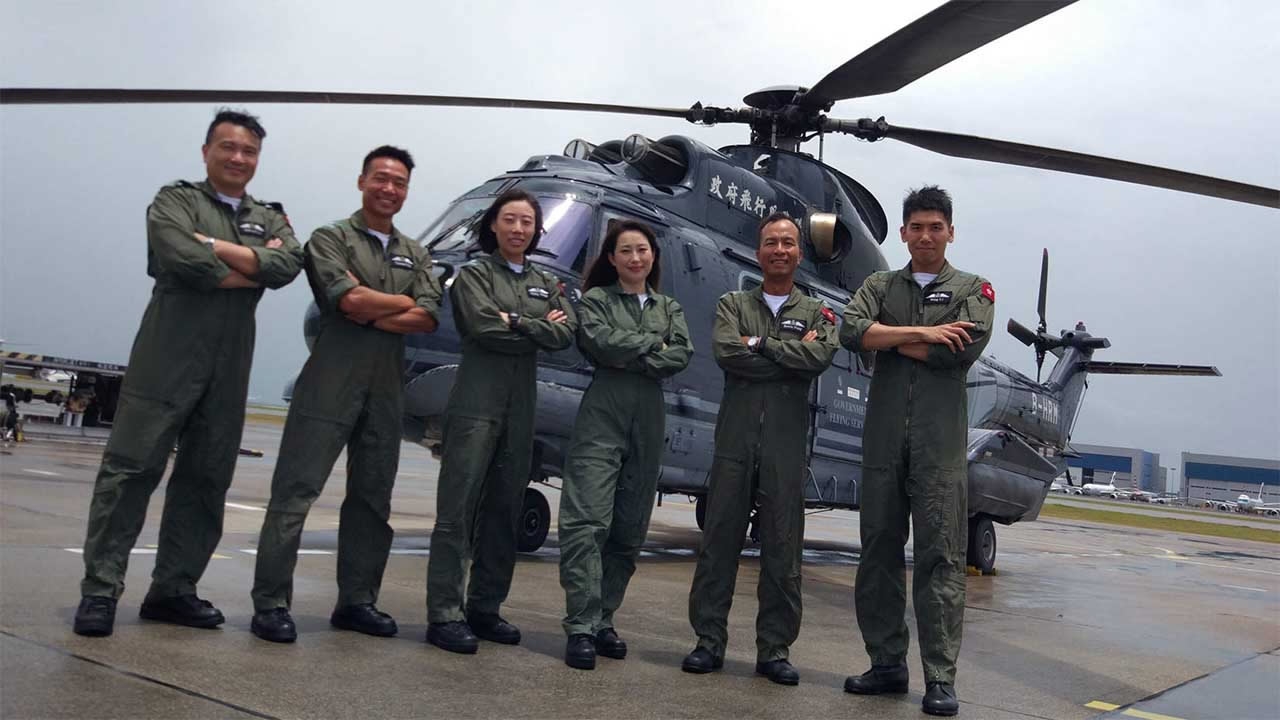
By CGTN’s Wu Guoxiu
All the aviation services provided by the government of Hong Kong Special Administrative Region (HKSAR) are carried out by one team of fearless pilots, who put their lives on the line on a daily basis. CGTN got into the cockpit with some of their crew, to learn more about life up in the sky.
Hong Kong's Government Flying Service, or GFS, is one of the city's seven service departments, like the police and customs.
GFS Controller Michael Chan says their internal customers include the public and government departments in Hong Kong. They also have external customers, reaching as far as the South China Sea.
“We serve the entire South China Sea as far as search and rescue is concerned. So anybody, any vessels, aeroplanes or people within the South China Sea who need our help, all they need to do is to call the appropriate authorities, and they will refer the case to us, and we’ll be out there for help,” Chan says.
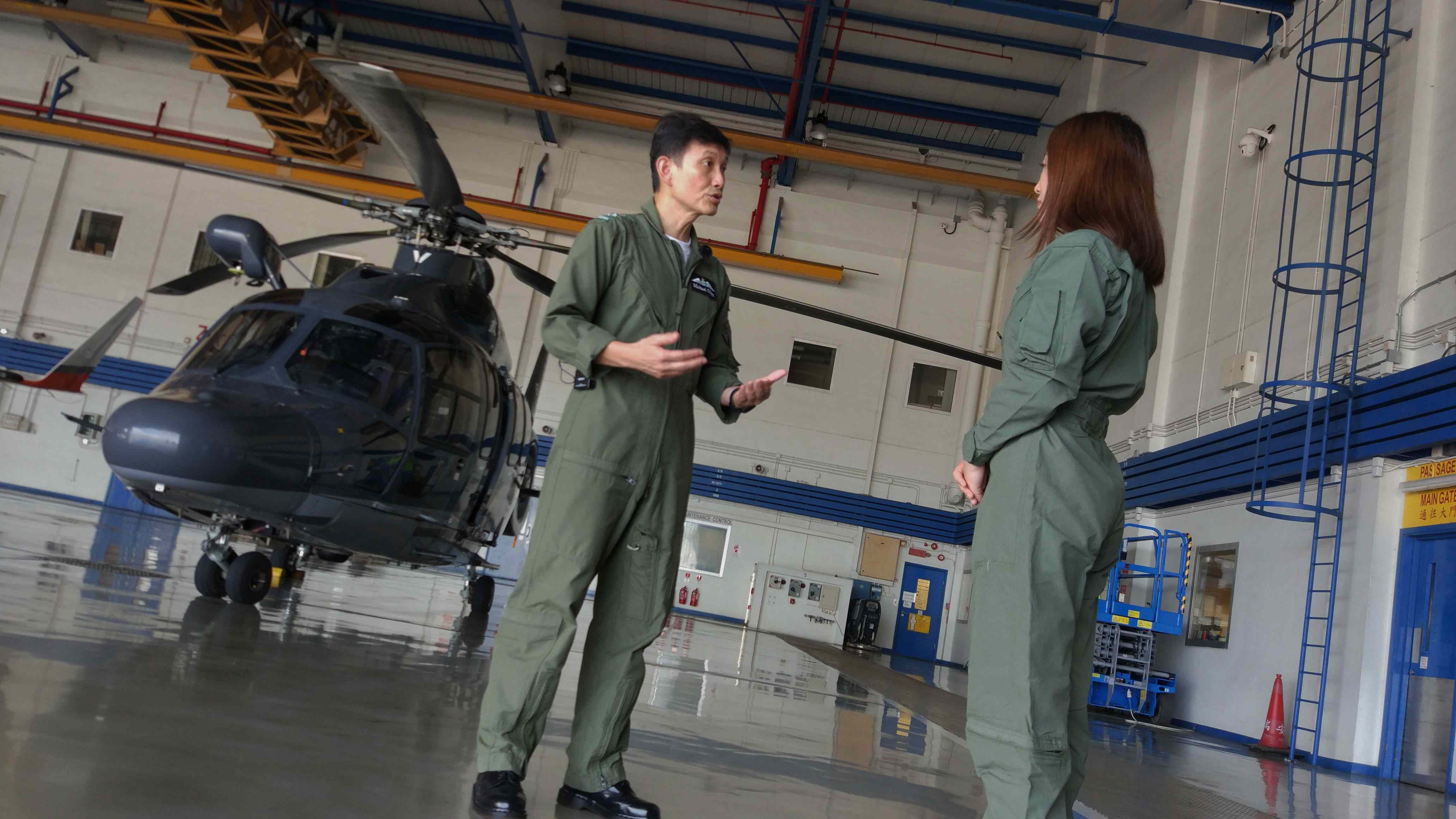
Michael Chan, Controller of the Hong Kong Government Flying Service during an interview with CGTN reporter Wu Guoxiu on June 12, 2017. /CGTN photo
Michael Chan, Controller of the Hong Kong Government Flying Service during an interview with CGTN reporter Wu Guoxiu on June 12, 2017. /CGTN photo
Service members don’t usually work on the mainland but one example of doing so, is when they were sent by the regional government to help with relief efforts following the 2008 earthquake in Sichuan Province.
Patrick Fok recalled the moment a Super Puma helicopter was flown to assist in rescue operations. “I was thinking what I could do to help, then my boss asked me, we have a chance to go there to help the people, would you come? Immediately I said yes, I couldn’t wait,” said Fok. The Super Puma chopper was flown by senior pilot Emily Hung, who also assisted in the rescue exercise.
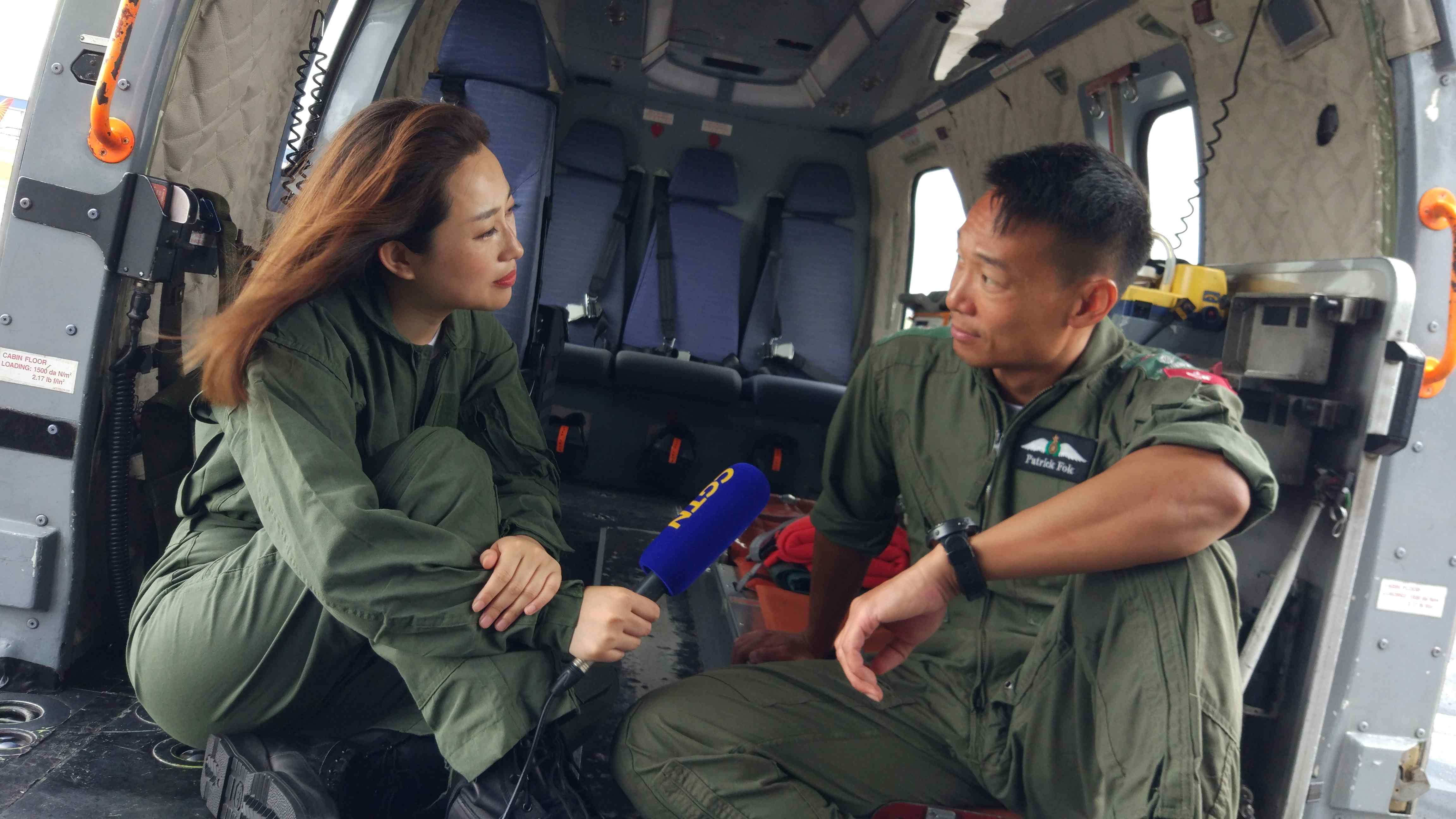
Patrick Fok, air crewman of the Hong Kong Government Flying Service being interviewed by CGTN reporter Wu Guoxiu on a helicopter on June 12, 2017. /CGTN photo
Patrick Fok, air crewman of the Hong Kong Government Flying Service being interviewed by CGTN reporter Wu Guoxiu on a helicopter on June 12, 2017. /CGTN photo
Senior pilot Bowie Fung was also part of the operations, “We departed from one of the bases nearby the mountainous area, we either flew the aircraft there to drop some food and water, or picked up people from very high in the mountains.”
24/7, the helicopters are ready to save lives in various kinds of emergencies. The choppers also assist in police operations, just like what you see in the movies.
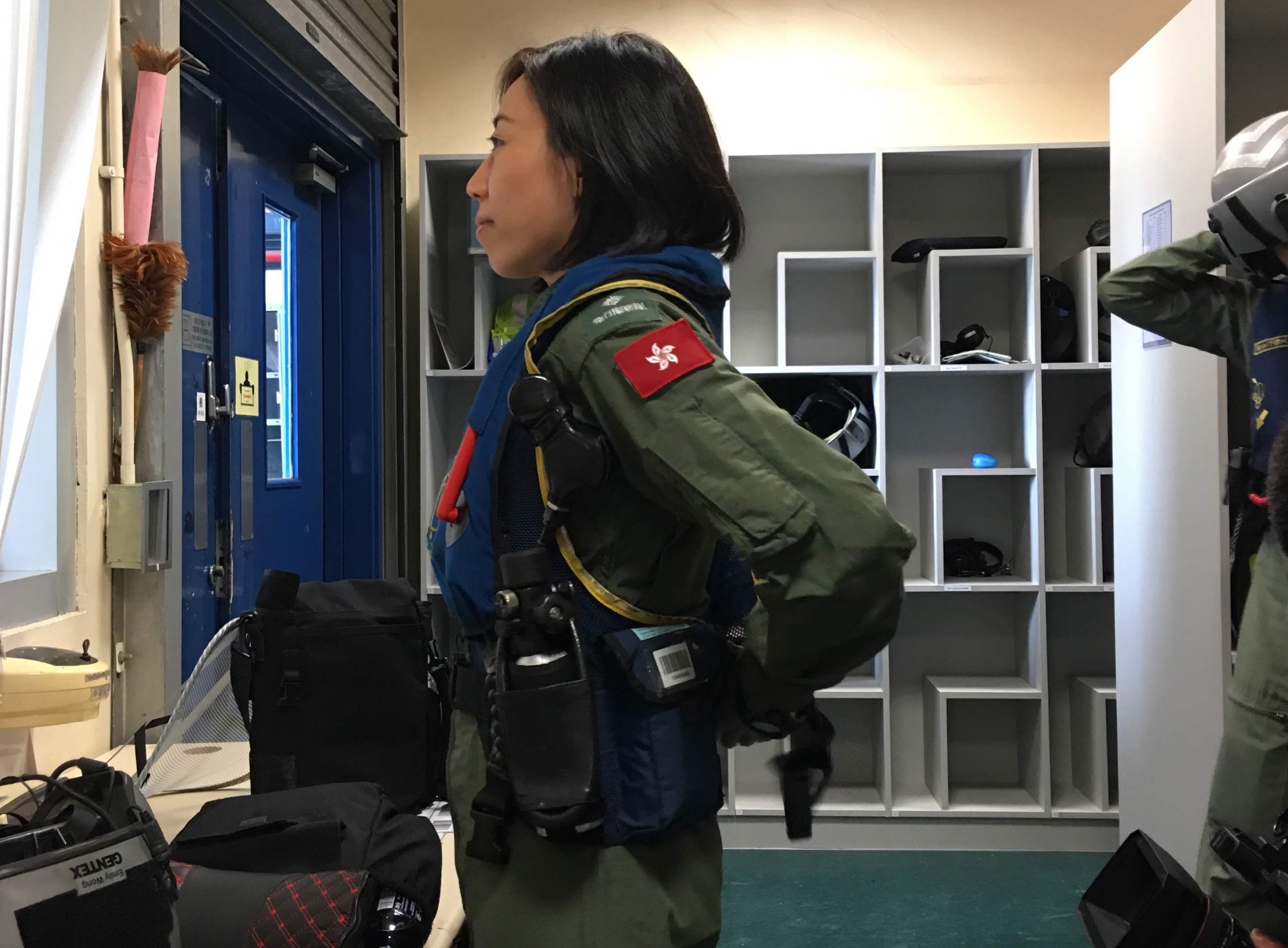
Emily Hung, senior pilot of the Hong Kong Government Flying Service putting on a flying suit before a flight on June 12, 2017. /CGTN photo
Emily Hung, senior pilot of the Hong Kong Government Flying Service putting on a flying suit before a flight on June 12, 2017. /CGTN photo
So far this year, the GFS has conducted over 1,000 operations, including air ambulance services, search and rescue, law enforcement and fire fighting. The team is made up of around 200 people.
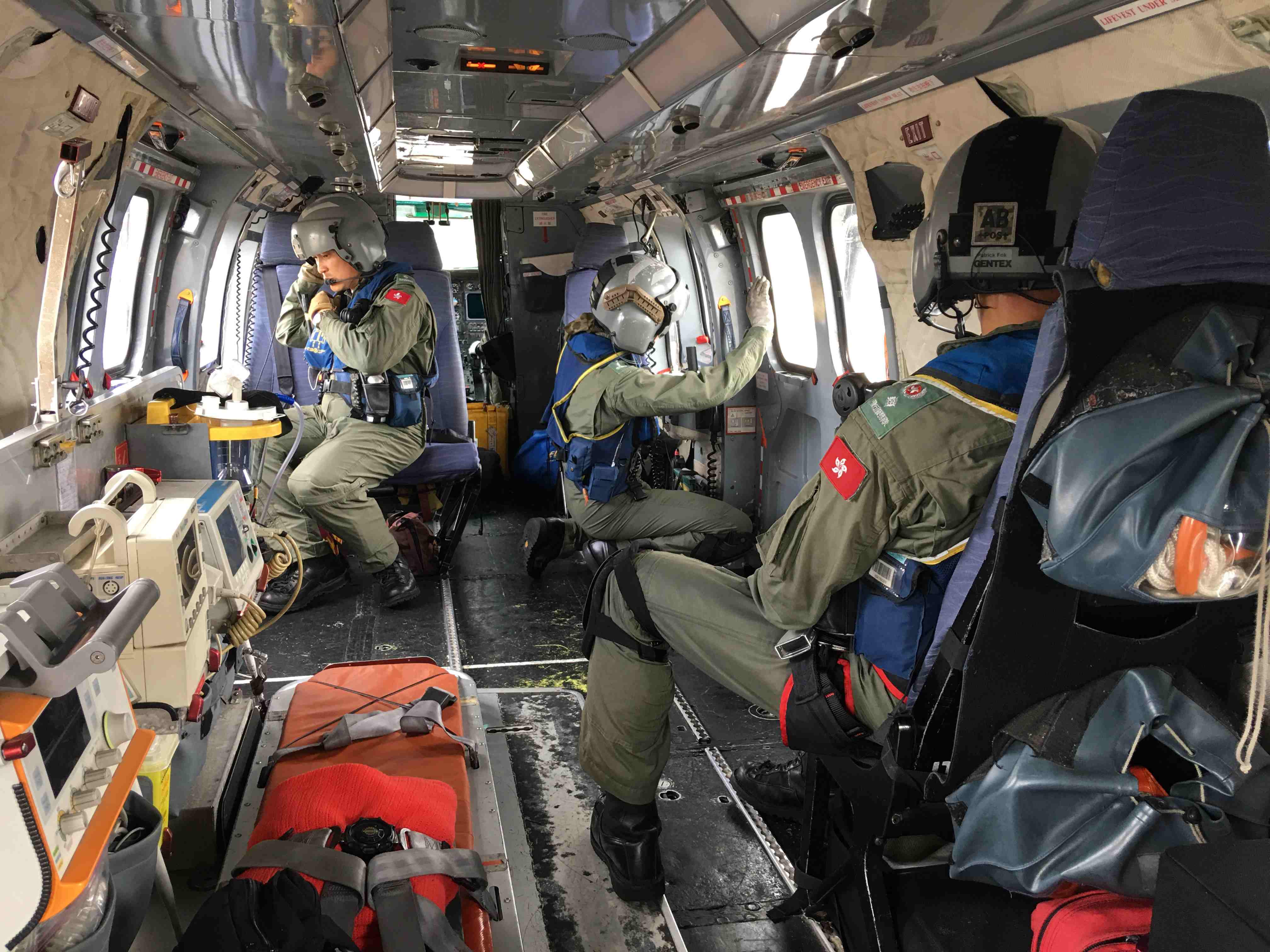
Inside a Super Puma helicopter of the Hong Kong Government Flying Service during a rescue exercise on June 12, 2017. /CGTN Photo
Inside a Super Puma helicopter of the Hong Kong Government Flying Service during a rescue exercise on June 12, 2017. /CGTN Photo
But Chan says it’s a challenge to retain good talent, “It takes 10 to 12 years to train a qualified pilot. But as a government department, we don’t pay as well as commercial airlines.”
Although the monetary rewards may not be as lucrative as the private sector, competition to get in is pretty tough. Every year, the GFS recruits only four new student pilots from over 3,000 applicants. It’s a thorough selection process to find just the right candidates, as being a member of the unit doesn't only mean having the skills - crew need to always be prepared for the unexpected.

SITEMAP
Copyright © 2018 CGTN. Beijing ICP prepared NO.16065310-3
Copyright © 2018 CGTN. Beijing ICP prepared NO.16065310-3